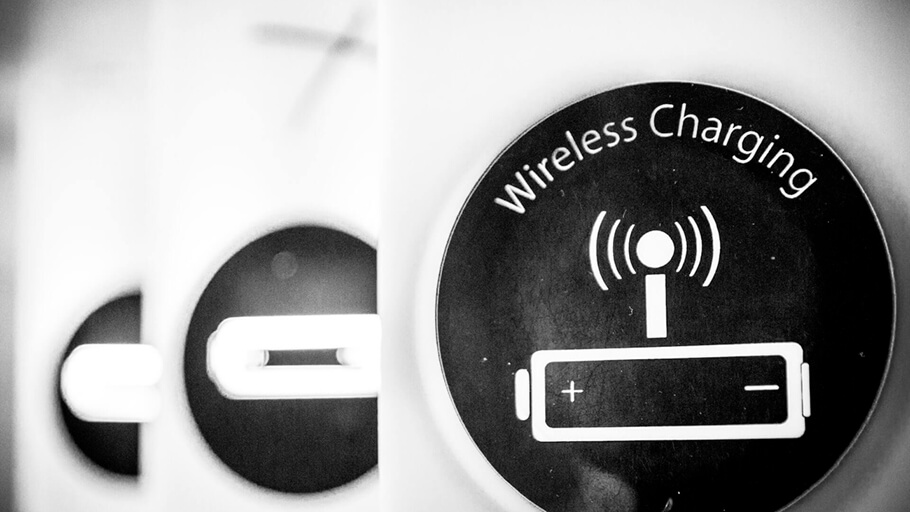Leaving the smartphone on a wireless charging deck and waking up to find it fully charged is a convenience we have all used to. It is almost a part of our night routine, but it also produces particular concerns in people regarding the safety of smartphones. The most common concern is overheating the phone, which can lead to many problems. Some also believe leaving the phone on a charging mat overnight can damage the battery’s health. And it is precisely this curiosity that has made you click on this link.
Let’s find out whether there are any repercussions to leaving the smartphone on a wireless charger overnight in this piece.
What Happens When Your Phone Finishes Charging?
Typically, it takes a few hours to charge a smartphone completely, depending on the battery capacity. Once a smartphone charges to 100%, it stops drawing power because of the protection chips installed in it. Thus, even if you keep a phone charging long after it has charged completely, you will not experience overheating or other issues.
Furthermore, modern chargers also have protection chips installed in them. So, as the phone stops drawing energy, the charger detects it and stops providing power to the smartphone. Even though wireless charging has a different mechanism, which uses coils to deliver an electromagnetic field, it does not affect how a phone or charger responds to overcharging.
In short, leaving a smartphone on wireless charging overnight does not pose any safety threats.
Should You Charge The Phone Overnight?
We have established that leaving a phone on wireless charging for longer than the required periods does not threaten safety. However, safety is not the only concern, as you must also want to protect your smartphone’s battery health. It is not as simple as safety, as experts have different takes on this issue. And to understand the theories of both sides, you have to understand a thing called “trickle charge.”
Once the battery reaches 100%, the phone does not stop functioning. A number of sensors and chips remain active to run the engine and applications in the background. Smartphones withdraw energy from the battery to keep these sensors and background applications running.
So, after the phone has finished charging, it will drop to 99% because of the energy consumed by sensors and background applications. And the moment the battery drops to 99%, the smartphone will start charging again to make it 100%. This small withdrawal of energy from the charger is a “trickle charge,” It happens two to three times overnight.
Some experts believe that trickle charges can increase a smartphone’s temperature and expose the battery to stress owing to high voltages. It can damage the battery’s health in the long run. The other side opines that modern smartphone batteries are designed to prevent the harm associated with a trickle charge. However, it is not clear whether the batteries of all smartphones are equipped to mitigate damage by the trickle charge.
We can assume that all flagship smartphones have advanced technologies to protect their batteries from the potential damages of trickle charges. However, the same cannot be said about budget or mid-range smartphones. It must also be mentioned that wireless charging is slower than wired one, so while the number of trickle charges per night is fewer, they are not nonexistent.
Things You Should Do Before Leaving a Smartphone on Wireless Charging Overnight
There is no concrete evidence to support either of the two theories we discussed earlier. Furthermore, the fact that lithium-ion batteries degrade over time is a confounding factor that limits understanding of trickle charge on the overall health of a smartphone’s battery. While we are not suggesting stopping charging phones overnight and compromising on convenience, we can certainly recommend some tips to prevent potential damage. Let’s look at them;
-
Charge The Phone in Ventilated Area
Smartphones and heat do not go well together, and charging produces a certain amount of heat in the smartphone. If you place the phone on charging in an area that lacks ventilation, the heat will accumulate and damage the phone’s battery. On the other hand, a ventilated space dissipates the heat generated by charging and keeps the phone cool.
-
Close Background Applications
As discussed earlier, a trickle charge happens because the phone requires energy to run applications in the background. While you cannot close all background applications, some can be stopped to preserve the battery and decrease the number of trickle charges. You can look at the applications in the settings and close the background operations which do not need them.
-
Use The Smartphone Manufacturer’s Recommended Charger
Chargers also play a key role in maintaining the health of a smartphone’s battery. Like smartphones, there are chips inside chargers that stop them from delivering power to the smartphone once fully charged. It is best to look for a charger that your smartphone manufacturer recommends. But if the smartphone company has not made any recommendation, get one from a reputed brand to protect the battery from long-term damage.
Several certifications can also help in identifying the quality of a wireless charging pad. You should look for Qi certification in the charging mat to ensure compatibility with smartphones and tablets. And also ensure that the charger complies with international safety standards and does not emit hazardous radiation. Regulations vary in different countries, but the standards to look for include KC, UL Listed, EAC, RCM, CE, FCC, and BSMI.
Myths About Charging a Phone Overnight
Several myths about charging a phone overnight exist, and most have no concrete evidence to support them. These include;
-
Overnight Charging Overloads Battery
Charging the phone overnight does not overload the battery because once it reaches 100%, it stops drawing power from the charger. So, once the charging is stopped, there is no way for the battery to become overloaded. Protection chips are installed in both charger and the smartphone, which prevent the flow of charge once the battery charges to its capacity.
-
Trickle Chargers Overheat The Phone
As discussed earlier, the average temperature of the smartphone gets higher when it is on charge. During overnight charging, the phone’s temperature will increase and come down once the battery hits 100%. It will be followed by a period of spikes in temperature because of the trickle charge, but it does not mean the phone will overheat. Trickle charge lasts very short, and there is a lot of time between two trickle charges. Hence, very little heat is generated by it, and the amount that is generated is dissipated earlier before the next cycle.
-
Batteries Should Always Drop To Zero Before Charging
Some people believe that the best way to wirelessly charge a phone is to drop the battery to under 10%, then put it on charge. However, it is not ideal for charging a modern lithium-ion battery. It wears the battery out faster than normal, making it an unsuitable technique to charge a smartphone.
The best way to charge a modern lithium-ion battery is to go for partial discharge, which means charging a battery as soon as it hits the 50% mark. You should only let the battery drop to zero when you want to recalibrate the sensor responsible for displaying the battery percentage.
FAQs
Does Leaving the Phone on a Wireless Charger Hurt the Battery?
Leaving a smartphone on a wireless charger for longer durations does not produce any safety-related issues, but some experts suggest a trickle charge can damage the battery in the long run. You can prevent potential damage by keeping the phone ventilated, using the recommended charger, and closing unnecessary background applications.
Can You Overcharge with Wireless Charging?
No, the smartphone and wireless chargers have protective chips installed in them. They stop the smartphone from drawing power once the battery reaches 100%.
Does the Wireless Charger Shut Off Automatically?
Modern wireless chargers have chips installed to detect the battery’s completion. Once a phone is charged completely, the charger will shut off automatically.
Is Wireless Charging Better Overnight?
Yes, wireless charging is better overnight because it charges the phone slower than wired chargers and decreases the number of trickle charges. Thus, it reduces the potential damage caused by a trickle charge to the battery.
Does Wireless Charging Emit more Radiation?
Wireless charging does not emit harmful radiation when not charging the smartphone. While charging the phone, wireless chargers emit around 3mG of EMF radiation which is generally considered harmful to the human body. However, the spread of these radiations is not enough to pose any threat to wireless charger users.
Final Words
Leaving a phone on wireless charging overnight does not produce any safety issues, but it may deteriorate the battery’s health in the long run. You can prevent the potential damage by simply closing background operations of the unnecessary applications and keeping the phone in a well-ventilated space.
That is all for now; we hope this guide has been helpful.


